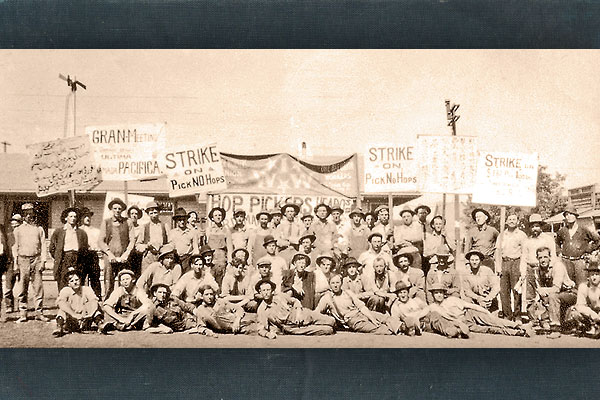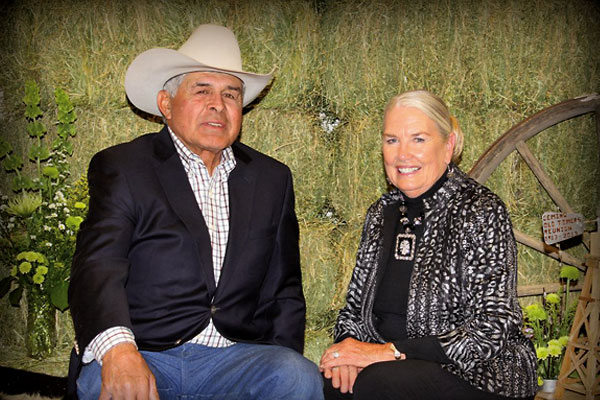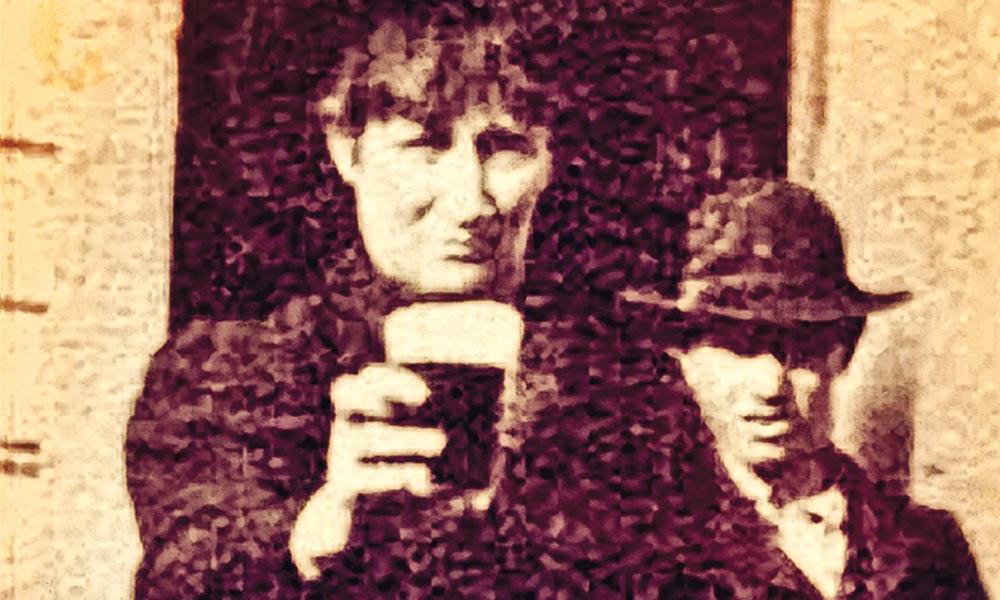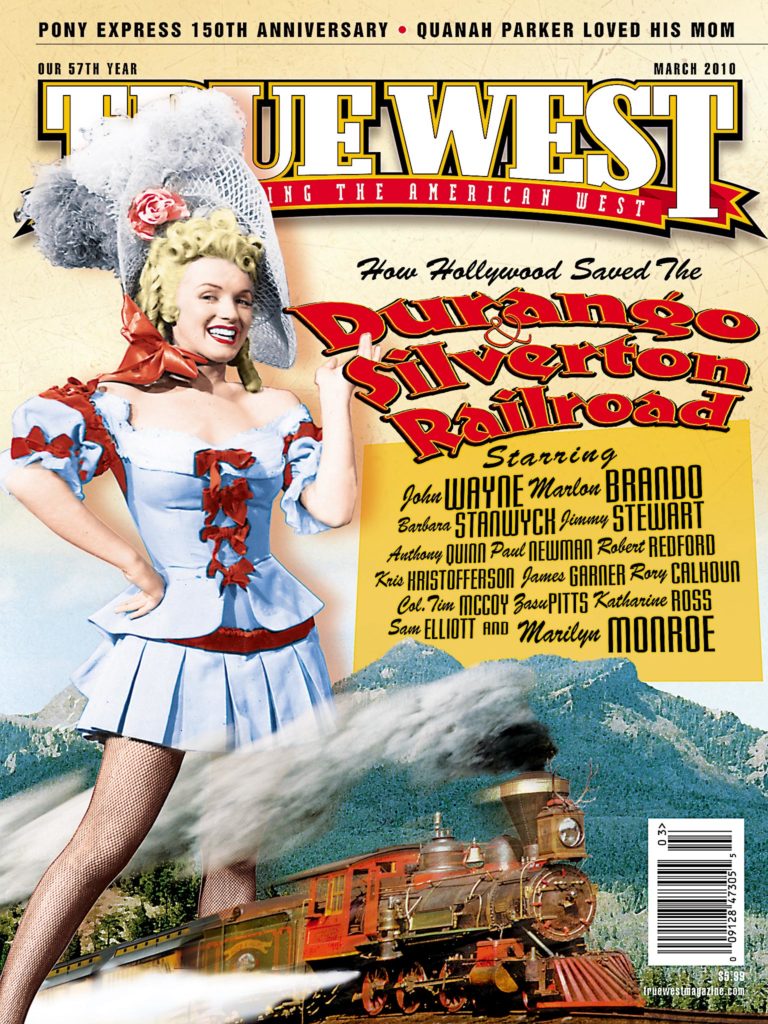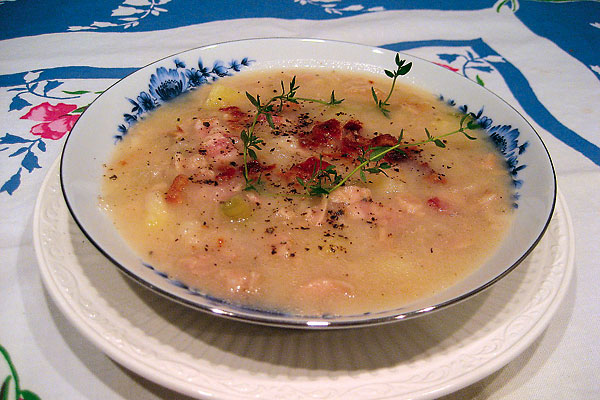
What do you get when you combine good food, family, friends, laughter, music and entertainment? A pleasant old-fashioned Sunday feast!
That’s exactly what Sarah Erlach, who grew up in Jackson, Nebraska, in the late 1800s recalled. “This town used to be pretty big. We used to have horse racing and everything on Sunday. My father always had one horse in the races; just home people, no outsiders in the race; ran only for pleasure, not for money … the Indians used to come up from the agency and dance their war dances for the whites here. When the country got settled up everyone would come in on Sunday to church and have a good time in the afternoon, and then go back to their farms and work all week; they did that way regular.”
Whether you call it supper or dinner, the Sunday meal was usually more special than a meal on any other day of the week. The noon day meal was traditionally called dinner, and the evening repast was supper. For most farmers, Sunday was a day of rest and hearty eating. For city folks it could mean the same thing or it could mean a day of frolicking and dining out. Regardless of where they lived, most people got together with family, friends and neighbors to enjoy the day. In the bigger towns and cities, such as Denver, Colorado, Tombstone, Arizona, and Kansas City, Missouri, folks went out to dine. Most of the local restaurants or hotels placed their Sunday Bill of Fare in the papers to tempt hungry patrons. The papers also provided “suggested” bills of fare for those who wanted to entertain or dine at home.
The Kansas City Daily Star posted a suggested bill of fare for the ordinary housewife in 1896. It included items for Sunday’s breakfast, dinner and supper. Dinner suggestions were: Clam soup, fricassee of chicken, browned potatoes, creamed onions and rice pudding. By the mid- to late 1800s almost any type of American food, including salmon and clams, was available in cans.
Captain William Hembree grew up in Polk County, Oregon, in the mid-1800s and remembered this: “As I said before, we worked every day but Sunday, and except for chores, Sunday really was a day of rest, and a very welcome one. The day was really a quiet and holy day in those times. My family was not what one would consider over much pious or religious, for those times, but it seemed that every family embraced some sort of faith.”
Frank Dixon of Hastings, Nebraska, recalled his Sundays during the late 1800s: “Now during the week when no dance or anything special going on we didn’t doll up. On Sundays went to church or at least Sunday school…. In the summer we were a little slack on this as picnics down on the river were so much the go. Nearly every one went and in big bunches…. We would hire a wagon or wagonette or hayrack, all chipping in. Then would buy pop or ice cream. Then the girls would furnish the eats. Ham and cheese sandwiches, pickles, hard boiled eggs and cakes.”
“The old-fashioned Sunday dinner was wonderful,” recalled Anna Potter Davis, who moved to Chamberino, New Mexico, in 1898. She added, “We were always prepared for company on Sunday, for all of the bread, pies, cakes doughnuts and cookies were baked on Saturday…. Sometimes we would have baked chicken with dressing and gravy.”
Rhode Island
Clam Chowder
4¼ lb. of salt pork or bacon, diced
4 medium potatoes, cubed
2 onions, sliced
1 cup boiling water
½ cup water crackers, crushed
1 tsp. salt
½ freshly ground black pepper
2 cans clams, chopped
1 bottle clam juice
Sauté pork fat or bacon over low heat in a medium stockpot and cook until browned. Place the crackers in a glass measuring cup and add enough boiling water to cover and let stand for three minutes. Drain off any excess water.
Add the clam juice, water, onions, potatoes, crackers, salt and pepper to the salt pork or bacon. Cook uncovered, over medium heat, until the potatoes are tender—about 20 to 30 minutes. Add the clams and cook another five minutes. Garnish with crumbled bacon and a fresh green herb like thyme or parsley. Serves four.
***
Recipe from Butte Weekly Miner,
March 4, 1897. It has been slightly modified for today’s cook.


